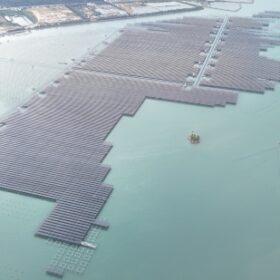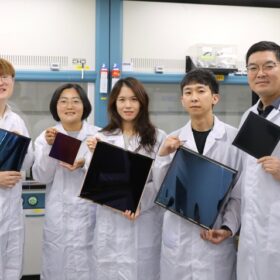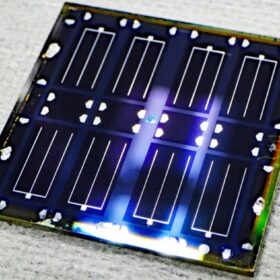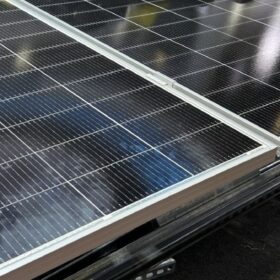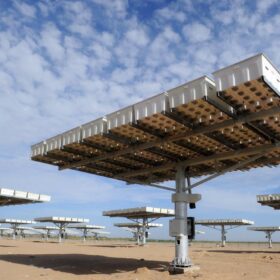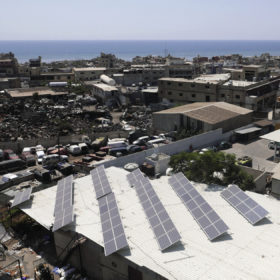Nine-year EL testing on 85,000 PV modules shows increasing presence of edge ribbon cracks
A UK research team used electroluminescence imaging to inspect 167 PV installations comprising a total of 5 million solar cells. Defects were categorized into into line cracks, complex cracks, edge-ribbon cracks, and potential-Induced degradation (PID).
‘Typhoon-resistant’ offshore PV project nears completion in China
China Three Gorges Corp. has nearly completed a 180 MW offshore solar plant, designed for typhoon resistance, off the coast of China.
KRICT sets world record with 20.6% efficiency for large-area perovskite cells
The Korea Research Institute of Chemical Technology (KRICT) has set a world record for power conversion efficiency at 20.6% for large-area perovskite solar cells exceeding 200 cm². The result, confirmed by Germany’s Fraunhofer Institute for Solar Energy Systems ISE (Fraunhofer ISE), marks a significant milestone in solar cell technology.
Indium-free chalcopyrite solar cell achieves 12.25% efficiency
Japanese scientists have developed a wide-bandgap chalcopyrite solar cell that can reportedly achieve high open-circuit voltage and fill factor values. The device is intended for use in top cell applications in tandem devices.
Solar modules now selling for less than €0.06/W in Europe
Solar module prices reached a new low this week, says Leen van Bellen, business development manager Europe for Search4Solar, a European purchasing and selling platform for solar products. He tells pv magazine that prices will remain low in the short term.
Open-source tool for CPV system modeling
Conceived by Spanish scientists, the cpvlib framework is configured as a modular tool that can accurately predict the energy production of various CPV configurations. It can reportedly analyze complex behaviors like air mass impact on CPV performance, angle of incidence limits, and light spillage.
Wavelength-selective PV tech for agrivoltaic applications
Scientists in Sweden have conducted a comprehensive review of all wavelength-selective PV technologies for agrivoltaic installations. They suggested creating standards for reporting on the performance of these technologies.
Scientists use series active filter to improve power quality of grid-tied PV
Scientists in the Middle East have developed a series active filter to improve power quality in grid-tied PV systems, consisting of an inductor, two capacitors, and four transistor-diode pairs. The filter reduces total harmonic distortion in voltage and current waves at the inverter output.
Nepal allocates 960 MW in PV tender with lowest bid of $0.037/kWh
The Nepalese authorities had originally planned to allocate 800 MW of PV capacity through the procurement exercise. The 64 selected projects range in size from 5 MW to 50 MW.
Bahrain launches tender for 44 MW solar plant
The solar project is planned to be located at the University of Bahrain’s campus.


